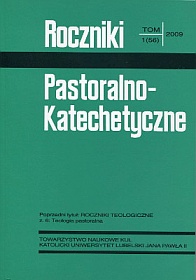Searching For and Communicating the Truth in a Dialog
Abstract
The article starts with an analysis of the causes of the crisis of truth in the contemporary world. The author emphasizes that a dialog is only possible when the classical (epistemic, logical), and at the same time commonsensical definition of the truth is assumed; one that understands the truth as ‘adequacy of the thought and reality’. One cannot have a dialog if he accepts the coherence, consensual, pragmatic or convention definition of the truth. A good deal of attention in the article is devoted to the issue of the truth of the utterance. The problem of truthfulness is emphasized, as a basic principle of a dialog, and the reader’s attention is drawn to various kinds of departing from the truth of the utterance: intellectual – mistake, error, falsehood, and moral – lie, half-truth, concealment, exaggeration, masking utterance, fraud and stratagem, gossip or over-interpretation.
In the question of the truth both its essential (what contents there are in the truth) and existential (what meaning for our life these contents have) aspect is important. Hence, one always should pay attention not only to the information role of the truth (it is the source of knowledge), but also to its wisdom function (it teaches the art of life). Discovering and understanding the truth in a dialog serves both appreciating “the value of life” (learning its sense) and perfecting the “quality of life”.
References
Borutka A., Żemła B.: Chrześcijańskie wychowanie do pokoju. Kraków 2000.
Cialdini R. B.: Wywieranie wpływu na ludzi. Gdańsk 2002.
Dobosz W.: Przez prawdę do wolności. Trzy zadania chrześcijanina. Kraków 2000.
Doliński D.: Psychologia wpływu społecznego. Wrocław 2000.
Fernández-Armesto F.: Historia prawdy. Przeł. J. Ruszkowski. Poznań 1999.
Hogan K.: Psychologia perswazji. Strategie i techniki wywierania wpływu na ludzi. Warszawa 2001.
Lepa A.: Świat propagandy. Częstochowa 1994.
Witkowski T.: Psychologia kłamstwa. Motywy – strategie – narzędzia. Taszów 2006.

